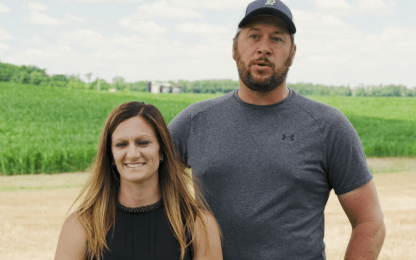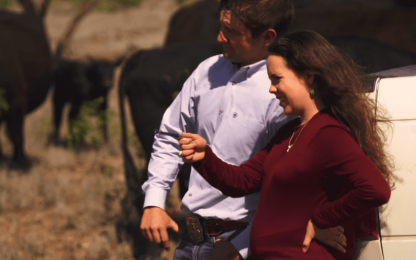Norma Cordova’s path back to agriculture to take over the family business was somewhat unique.
Now a third-generation farmer, Norma and her husband, Darrell Cordova, had previously spent 20 years as teachers when they were faced with the decision of succeeding her parents in managing the farm or selling it. “It was a tough decision to leave teaching and come back to the farm,” says Norma. “But we were looking at the future for the next generation.” The Cordova’s son, Trevor, is already working with them on the farm.
Embracing Change
Although the Cordova family embraced the tradition of their 130-year-old family farm in Stanislaus County and 80 years in the current location, they haven’t hesitated to embrace new crops and new technologies. When they started in 1989, their 800-acre spread was primarily dry-land grain, with some pipe-irrigated blackeye beans. As the years went on, they recognized that almonds offered a better, more lucrative opportunity, and in 2005 planted their first almond orchard.
Today, they have transitioned two more blocks of land for a total of 240 acres, all financed by Yosemite Farm Credit. Looking to diversify, they plan to shift 60 acres to walnuts in 2013, and anticipate transitioning their remaining land over time to permanent tree crops. In the meantime, they use the land to grow two seasons of silage crops for nearby dairies.
Practicing Patience
As with any crop, growing almonds presents its own challenges. It takes three years before a tree is considered productive, eventually producing 4,000 pounds per acre. To help support optimal production, the Cordovas installed micro-sprinklers on their orchard land, a technology investment that reduces water use, enables more targeted irrigation, and can also be used to deliver fertilizer and other chemicals when and where needed. Also, the Cordovas practice minimal pruning which further increases almond yields.
Another aspect of almond growing has led the Cordovas to investigate an innovative development. Conventional almond trees require external pollination, and farmers use bees for the purpose, typically renting hives from beekeepers sometimes states away. The Cordovas have taken a slightly different approach, allowing a local beekeeper to house his hives on a portion of their land in exchange for a favorable rental rate.
Despite this, though, the bees represent a significant input cost – orchards need one to three hives per acre and at $150 per hive, the costs add up. Self-pollinating trees would eliminate the cost altogether, so the Cordovas made the decision to invest.
“This is the second year that they’re in the ground, and we’re pleased with the growth and the nut sets,” Norma says. “It’s very promising, and I think we’re going to want to plant more in the future.”



